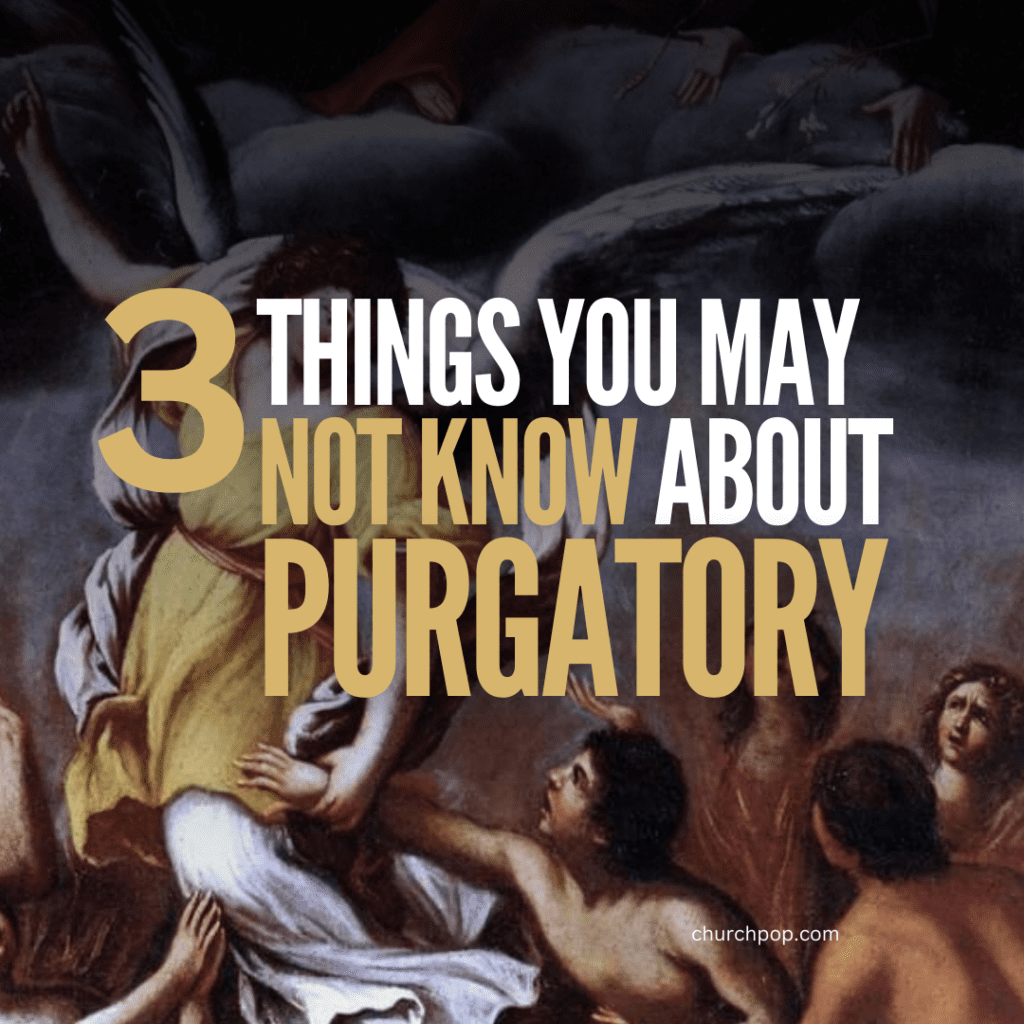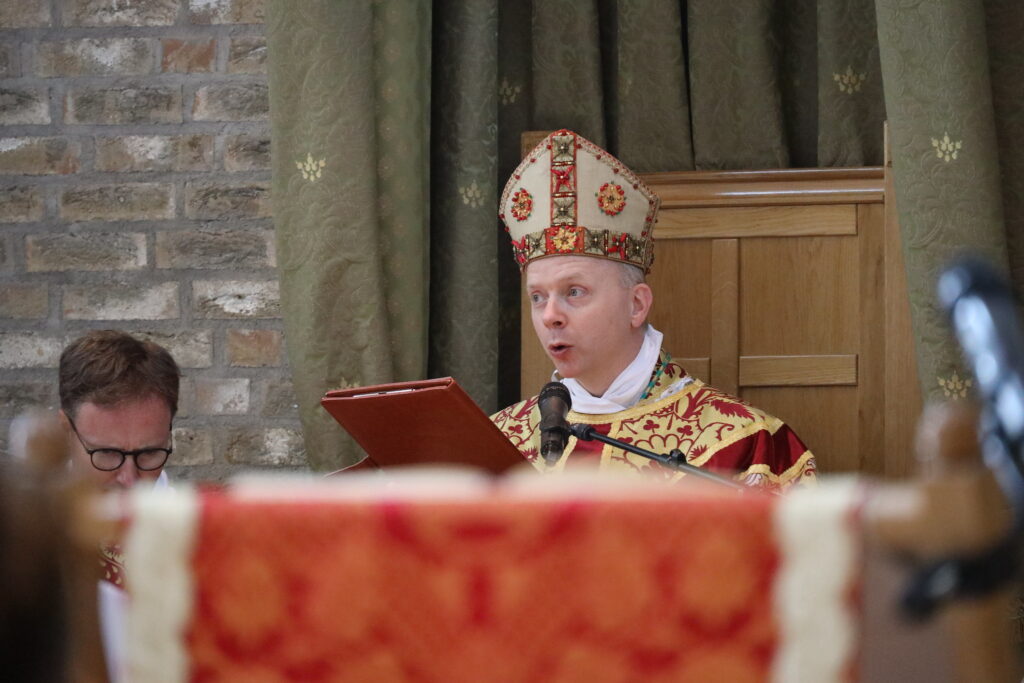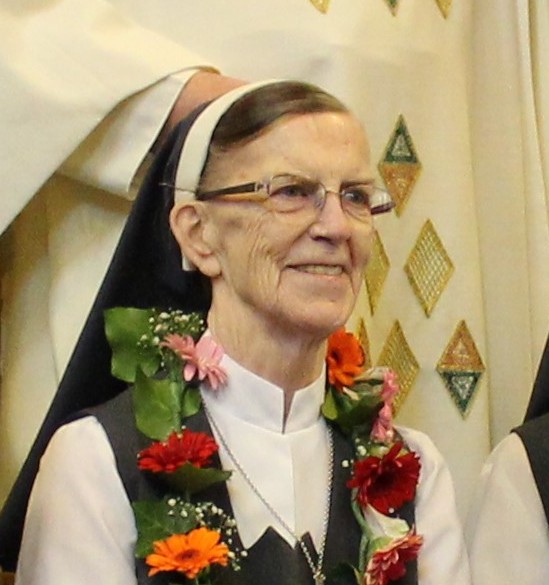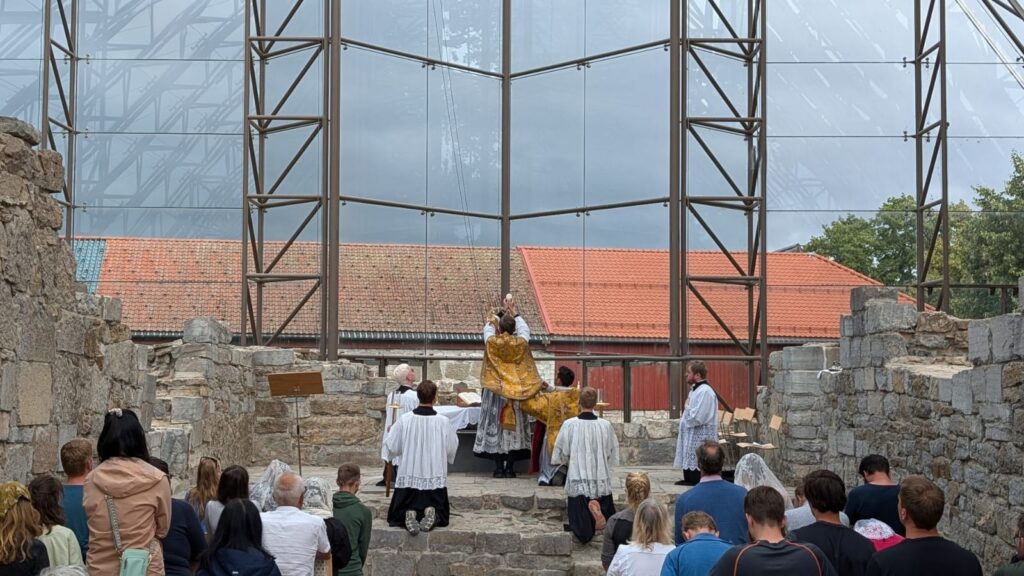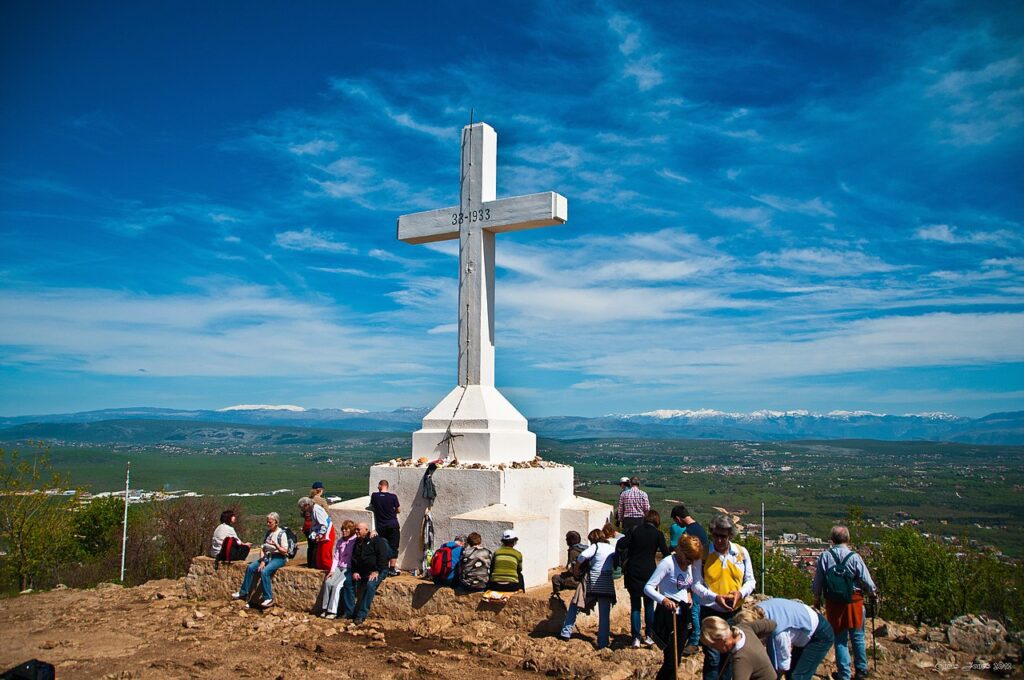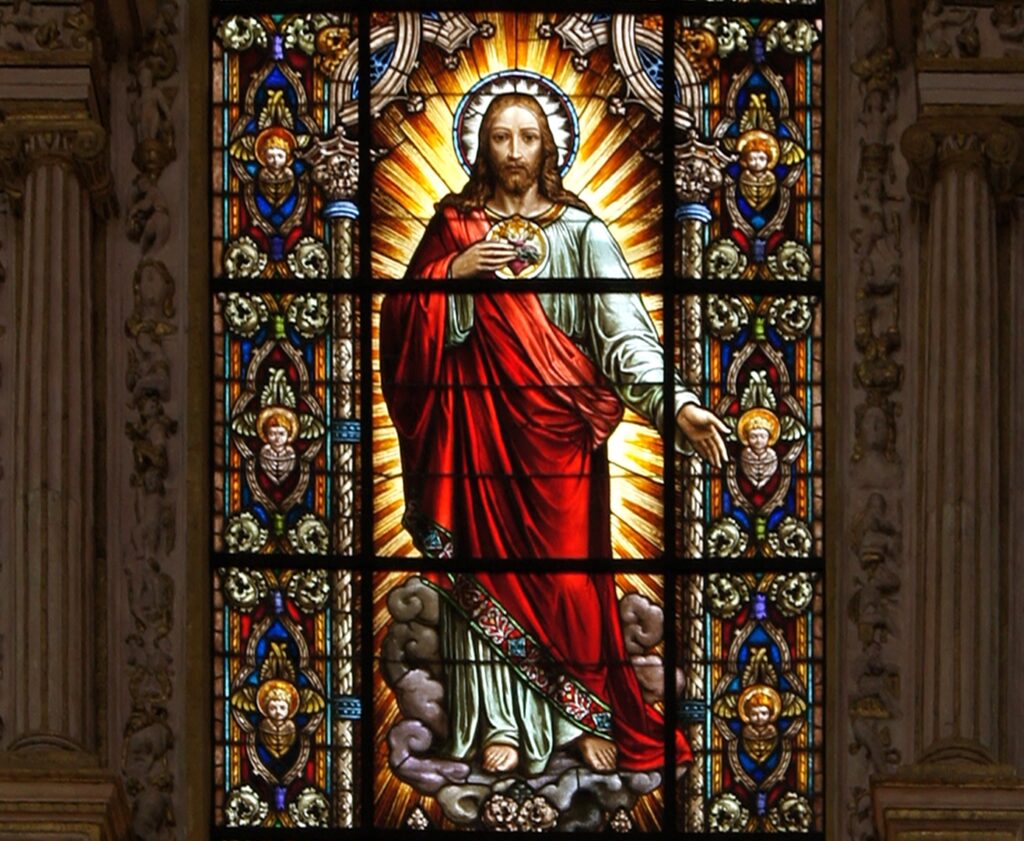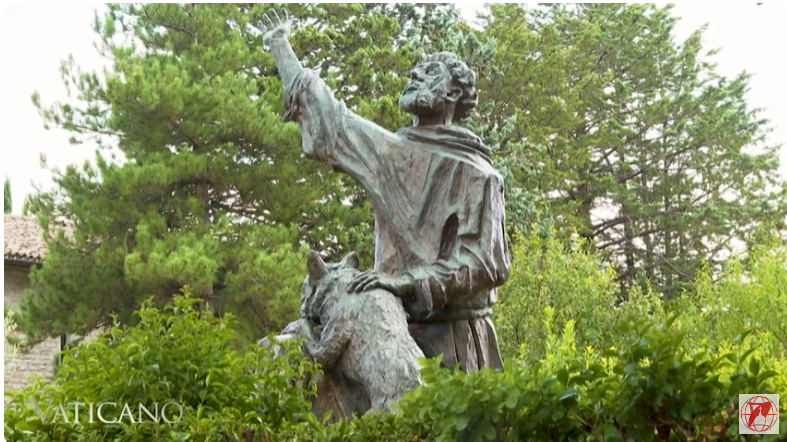Regarding Purgatory, the Catechism of the Catholic Church states,
“All who die in God’s grace and friendship, but still imperfectly purified, are indeed assured of their eternal salvation; but after death they undergo purification, so as to achieve the holiness necessary to enter the joy of heaven. The Church gives the name Purgatory to this final purification of the elect, which is entirely different from the punishment of the damned” (CCC 1030-1).
Purification after death from sin (and the consequences of sin) is mentioned in the New Testament in 1 Cor. 3:11-15, Matt. 5:25-26, and Matt. 12:31-32.
According to EWTN,
“Purgatory is the state, after death, where souls who are not yet perfected in their love for God, are purified before admittance to the all-holy God.”
Caroline Perkins, ChurchPOP
3 Things You May Not Know About Purgatory
1. Purgatory is not a punishment, it is a state of purification.
2. The souls in Purgatory can pray for us, but cannot pray for themselves.
3. We must pray for the souls in Purgatory. The purification process can be painful! However, there is also great consolation in the assurance of salvation.
You can find more information on praying for the dead here.
And finally, some perspective from Saint Augustine:
“But by the prayers of the Holy Church, and by the salvific sacrifice, and by the alms which are given for their spirits, there is no doubt that the dead are aided, that the Lord might deal more mercifully with them than their sins would deserve. The whole Church observes this practice which was handed down by the Fathers: that it prays for those who have died in the communion of the Body and Blood of Christ, when they are commemorated in their own place in the sacrifice itself; and the sacrifice is offered also in memory of them, on their behalf. If, then, works of mercy are celebrated for the sake of those who are being remembered, who would hesitate to recommend them, on whose behalf prayers to God are not offered in vain? It is not at all to be doubted that such prayers are of profit to the dead; but for such of them as lived before their death in a way that makes it possible for these things to be useful to them after death”

